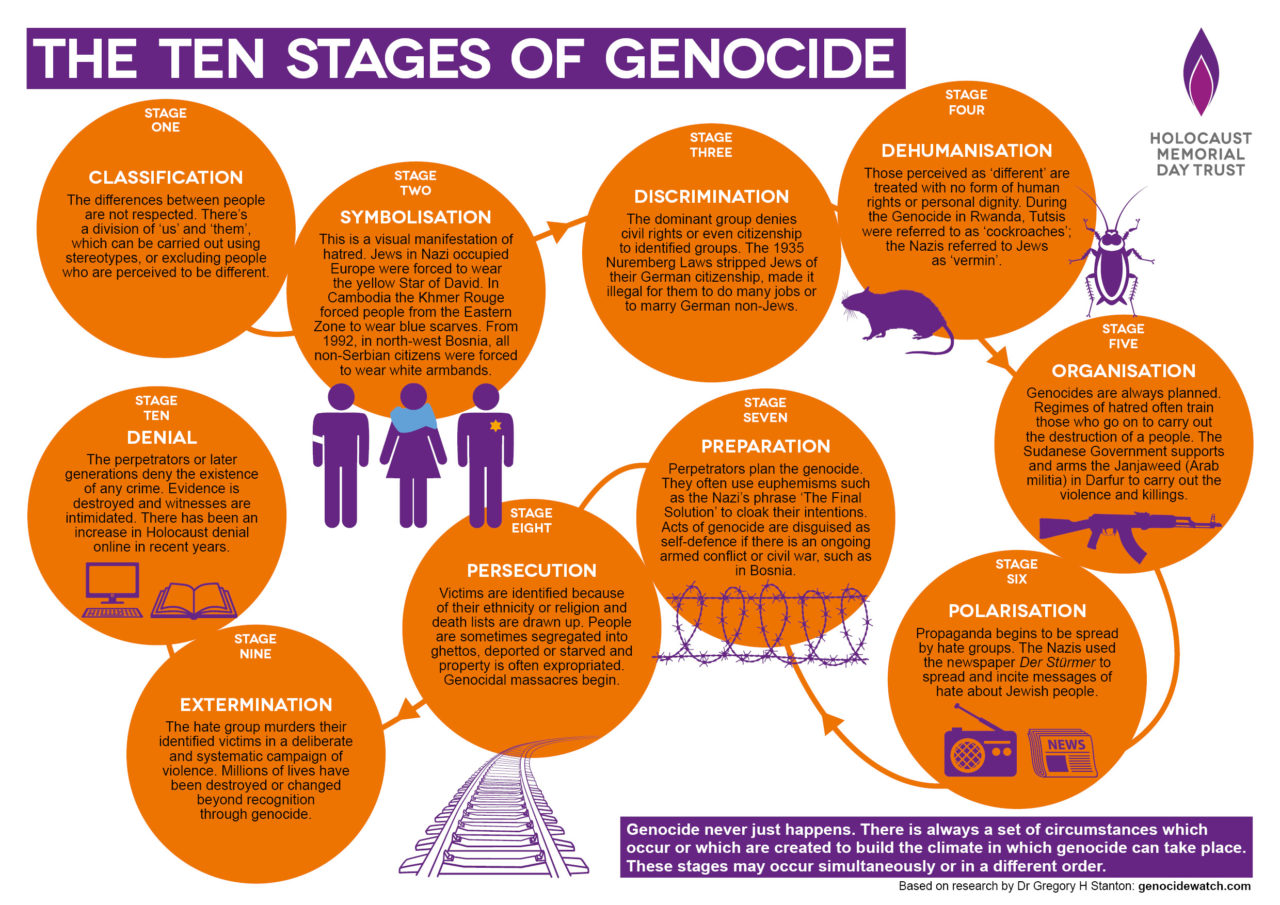What are the 6 stages of war?

What are the stages of war
The three levels of warfare—strategic, operational, and tactical—link tactical actions to achievement of national objectives. There are no finite limits or boundaries between these levels, but they help commanders design and synchronize operations, allocate resources, and assign tasks to the appropriate command.
What are the 5 phases of warfare
The U.S. military's dominant paradigm for operations is a six-phase planning construct, consisting of phase 0 (shape), phase I (deter), phase II (seize initiative), phase III (dominate), phase IV (stabilize), and finally, phase V (enable civil authority).
What are the 8 types of war
Types of warCold.Colonial war.Insurgency. War of independence. War of liberation. Civil war.Fault line war.Invasion.Proxy war.Range war.Religious war.
What are the six causes of war
These fundamental or primary causes of war explain why war repeatedly occurs in international politics, why war can occur at any moment. Thus scholars trace war to human nature, biological instincts, frustration, fear and greed, the existence of weapons, and similar factors.
What are the 7 conditions of war
The principles of the justice of war are commonly held to be: having just cause, being a last resort, being declared by a proper authority, possessing right intention, having a reasonable chance of success, and the end being proportional to the means used.
What are 6 effects of war
Death, injury, sexual violence, malnutrition, illness, and disability are some of the most threatening physical consequences of war, while post-traumatic stress disorder (PTSD), depression, and anxiety are some of the emotional effects.
What are the 7 domains of warfare
Today, there are seven warfare areas. The first five are familiar: air, sea, land, space, and cyber— traditionally the domain of the military services. The two others, often ignored in national defense strategy discussions and not explicitly recognized as such, are economic and education warfare.
What are the 6 functions of warfare
Those elements, depicted in figure 2, are leadership, information, command and control, movement and maneuver, intelligence, fires, sustainment, and protection. The subset of elements known as the warfighting functions are the last six elements listed.
What are the 12 rules of war
principles of war – Selection and maintenance of the aim; maintenance of morale; offensive action; surprise; security; concentration of force; economy of effort; flexibility; co-operation; and administration.
What are the 9 principles of war
There are nine Principles of War. They are objective, offensive, mass, economy of force, maneuver, unity of command, security, surprise, and simplicity. Below is a brief description and a crosswalk of each principle of war to business; it's not surprising to see the similarities and overlap.
What are 5 things that cause war
War is caused by many different things, including competition over land, religious conflicts, and nationalism. Imperialism, racism, and slavery have also been causes of armed conflict.
What are the 5 main causes of the war
Eight Main Causes of WarEconomic Gain.Territorial Gain.Religion.Nationalism.Revenge.Civil War.Revolutionary War.Defensive War.
What are the 6 domains of warfare
U.S. military operations can be divided into six domains depending on your perspective: subsurface naval, surface naval, ground (which is just another surface), air, space and cyberspace. As we expanded domains, conflicts arise first on the relevance, and then on the ownership of those domains.
What are the 7 elements of combat
Those elements, depicted in figure 2, are leadership, information, command and control, movement and maneuver, intelligence, fires, sustainment, and protection.
What are the 7 just war principles
The principles of the justice of war are commonly held to be: having just cause, being a last resort, being declared by a proper authority, possessing right intention, having a reasonable chance of success, and the end being proportional to the means used.
What are the 7 points of just war
It is a composite indicator: the average of estimated values for seven criteria from the long-standing Just War tradition Á Just Cause, Right Intent, Net benefit, Legitimate Authority, Last Resort, Proportionality of Means and Right Conduct, each of which are evaluated on a 7-point scale.
Who will start WW3
Only 3 countries can be real trigger of nuclear WW3 now: USA, Russia and China. Next candidates in the future are tandems India / Pakistan, Iran / Israel. In depth SW bug of ICBM and other nuclear weapons control systems which activate nuclear attack.
What are the 7 conditions for a just war
It is a composite indicator: the average of estimated values for seven criteria from the long-standing Just War tradition Á Just Cause, Right Intent, Net benefit, Legitimate Authority, Last Resort, Proportionality of Means and Right Conduct, each of which are evaluated on a 7-point scale.
What are the 7 reasons for just war
The Jus Ad Bellum Convention. The principles of the justice of war are commonly held to be: having just cause, being a last resort, being declared by a proper authority, possessing right intention, having a reasonable chance of success, and the end being proportional to the means used.
What are the 7 principles of warfare
The principles of war: Objective, Offensive, Mass, Economy of Force, Maneuver, Unity of Command, Security, Surprise, Simplicity. Military officers first learn of these principles as lieutenants and seek to refine their understanding throughout their careers.
What are the 10 elements of war
principles of war – Selection and maintenance of the aim; maintenance of morale; offensive action; surprise; security; concentration of force; economy of effort; flexibility; co-operation; and administration.
What are the 9 principles of warfare
The author specifies that there are nine principles of war—an objective, mass, offensive, unity of command, simplicity, the economy of force, maneuver, security, and surprise.
What are the 9 rules of war
The principles of war: Objective, Offensive, Mass, Economy of Force, Maneuver, Unity of Command, Security, Surprise, Simplicity. Military officers first learn of these principles as lieutenants and seek to refine their understanding throughout their careers.
Is nuclear war likely
The likelihood of nuclear war may be possible; however, in today's world, the United States is equipped with defense strategies that, in most cases, would render an attack from Russia to be a failure.
Who declares a world war
The Constitution grants Congress the sole power to declare war. Congress has declared war on 11 occasions, including its first declaration of war with Great Britain in 1812. Congress approved its last formal declaration of war during World War II.



0 Comments